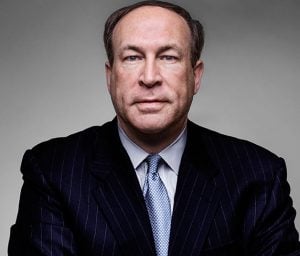
Michael Brennan
“We ain’t going nowhere, but got suits and cases.” – Kanye West
Last week, yet again in front of the Senate Judiciary Committee, it was denied that implicit racial bias exists in our justice system.

3 Ways Lawyers Are Finding New Efficiencies With AI
Those who’ve adopted legal-specific systems are seeing big benefits.
Implicit or unconscious bias is a mental shortcut “that fills in gaps in our knowledge with similar data from past experiences and cultural norms.” It is a normal part of how we make decisions. Unfortunately, unconscious racial bias continues to corrupt our justice system.
During his Senate hearing for a lifetime seat on the U.S. Court of Appeals for the Seventh Circuit, Northwestern Law alumnus Michael Brennan stated that he was unfamiliar with the data regarding implicit bias in our judicial system.
As a former Milwaukee County trial court judge from 2000-2008, his ignorance of this matter was concerning, to say the least. The blue slip abuse along with his feigning ignorance were only trumped by his oblivious statements that he will guard against implicit bias entering into our judicial system.
When asked by Senator Corey Booker, “Do you think that racial bias exists in our criminal just system?” Brennan responded: “I would indicate only that I would do my very best as a judge to ensure that no biases came in.”

First Draft To Final: How To Use AI To Accelerate Legal Drafting Workflows
Discover how LexisNexis Protégé™ transforms legal drafting into a strategic collaboration between lawyers and AI—enhancing quality, speed, and defensibility.
After citing specific data on implicit bias, Booker repeated, “Do you think implicit racial bias exists in the racial justice system as you know it? I’m not asking about you specifically sir — I’m asking: Do you think racial bias system exists in the justice system as you know it?”
Brennan then responded: “I can’t be in a position Senator, under the cannon of ethics of taking positions…”
After citing statistics and telling Brennan the data is profound and that politicians on both sides of the aisle have agreed that in the United States of America implicit racial bias impacts the criminal justice system, an exasperated Booker stated, “And you have no opinion, on the facts, whether racial bias exists in the American justice system…. Yes or no, do you think racial bias, implicit racial bias exists in the criminal justice system, yes or no?”
Brennan finally countered that he would need to look at the data.
While he looks at the data, we should examine how our justice system currently operates as well.
Many of the recent judicial nominees have three things in common: they are white, male, and unprepared. Diversity in our nation’s judiciary system has been withering on the vine for quite some time, but at least the past two presidents were addressing this issue. Now with an administration all too happy to promote the status quo, judicial diversity is rotting on the vine, and the case for it has never been more ripe.
According to the Associated Press:
President Donald Trump is nominating white men to America’s federal courts at a rate not seen in nearly 30 years, threatening to reverse a slow transformation toward a judiciary that reflects the nation’s diversity.
So far, 91% of Trump’s nominees are white, and 81 percent are male, an Associated Press analysis has found. Three of every four are white men, with few African-Americans and Hispanics in the mix. The last president to nominate a similarly homogenous group was George H.W. Bush.
As noted by the Washington Post:
Federal judges are appointed for life. Trump is nominating candidates who are relatively young, and therefore many are likely to remain on the bench 30 to 40 years. If he continues to select nominees disproportionately from the same demographic of white, male and conservative, Trump will be effectively freezing the demographic and ideological composition of the bench for decades.
Ninety-one percent of Trump’s nominees are white, which tracks closely with my ninety-two percent rule. Ninety-one percent of Trump’s nominees are white, is this problematic? Ninety-two percent of Biglaw partners are white, is there a problem with this?
It’s clear by the recent trend in appointments, diversity and inclusion are not a priority for the judicial system. But diversity in our justice system is essential for delivering equal justice, restoring the public’s faith in the legal system, and countering perceptions of systemic bias that currently exist. It’s time to address the diversity crisis in the judiciary system. It’s not only frustrating for qualified minority candidates, it is offensive.
It is evident that implicit racial bias pervades our education, law, and politics. As Justice Anthony M. Kennedy wrote in a recent case regarding clear evidence of racial bias in jury deliberations, “racial bias implicates unique historical, constitutional and institutional concerns.”
The fundamental question shouldn’t be whether implicit bias exists in our institutions — for it remains silent but deadly, while the status quo remains alive and well.
The critical question is, what are we going to do about it?
We should not continue to deny the existence of implicit bias in our justice system. After all, we don’t want to be as ignorant and unprepared as our federal judicial nominees.
Renwei Chung is the Diversity Columnist at Above the Law. You can contact Renwei by email at [email protected], follow him on Twitter (@renweichung), or connect with him on LinkedIn.